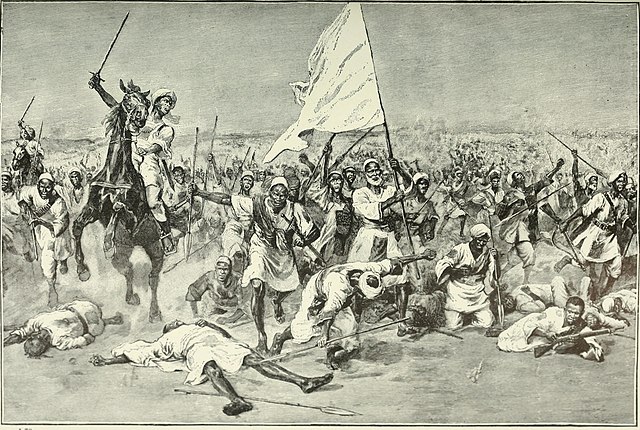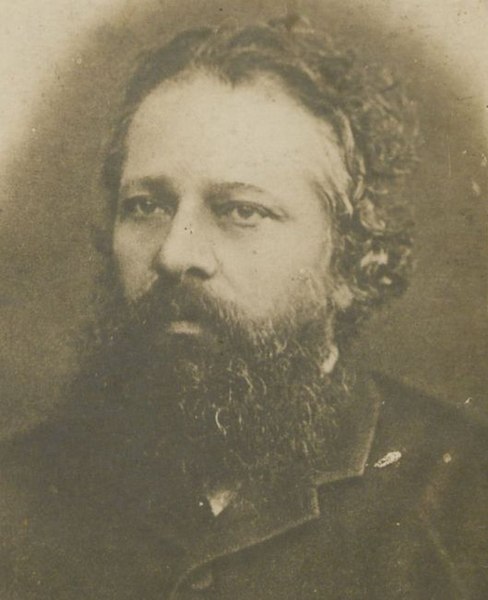Jihad is an Arabic word which literally means "striving" or "struggling", especially with a praiseworthy aim. In an Islamic context, it can refer to almost any exertion of effort to make personal and social life conform with God's guidance, such as internal struggle against one's evil inclinations, proselytizing, or efforts toward the betterment of the Muslim community (Ummah), though in non-Muslim societies the term is most often associated with armed conflict.
Charging Mahdist army during the Battle of Omdurman in 1898
Sayyid Qutb, Islamist author and influential leader of the Muslim Brotherhood
Islamic modernism is a movement that has been described as "the first Muslim ideological response to the Western cultural challenge," attempting to reconcile the Islamic faith with modern values such as democracy, civil rights, rationality, equality, and progress. It featured a "critical reexamination of the classical conceptions and methods of jurisprudence", and a new approach to Islamic theology and Quranic exegesis (Tafsir). A contemporary definition describes it as an "effort to re-read Islam's fundamental sources—the Qur'an and the Sunna, —by placing them in their historical context, and then reinterpreting them, non-literally, in the light of the modern context."
Islamic Modernism and Fundamentalism Genealogy
Ottoman intellectual and activist Namık Kemal (d. 1888)
Indian educationist and philosopher Syed Ahmad Khan (1817–1898)
Egyptian Islamic jurist and scholar Mahmud Shaltut






